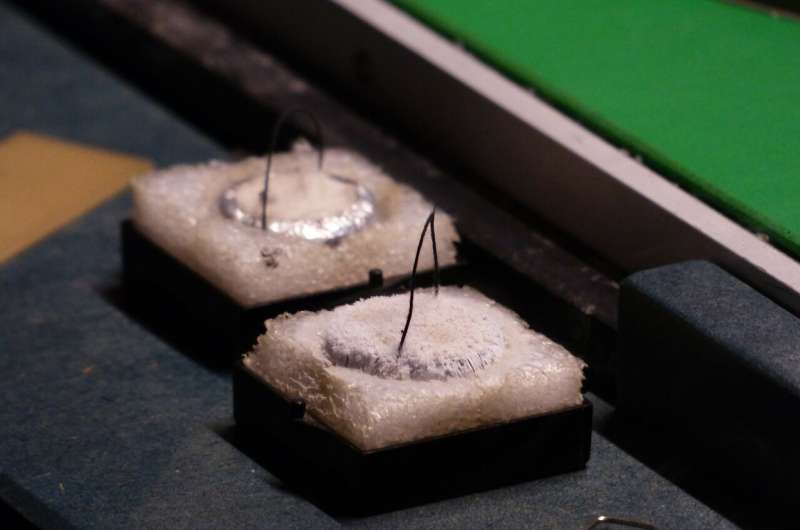This article has been reviewed according to Science X's editorial process and policies. Editors have highlighted the following attributes while ensuring the content's credibility:
fact-checked
peer-reviewed publication
reputable news agency
proofread
Room-temperature superconductor study retracted by Nature

A study published in March claiming the discovery of a superconductor that works at room temperature—a scientific holy grail—has been retracted by the high-profile journal Nature at the request of most of its authors.
It marks Nature's second retraction of a superconductor study produced by the team led by Ranga Dias of the University of Rochester in the United States.
It also comes after a different room-temperature superconductor discovery claim went viral on social media earlier this year which also fell short of the long sought-after breakthrough.
Superconductors are materials that can carry electrical currents with zero resistance, unlike traditional materials such as copper which lose part of the charge in the form of heat.
Since the phenomenon was discovered in 1911, many superconducting materials have been found—but to work, all have to kept at extremely cold temperatures and high pressure, limiting their real-world applications.
So scientists have been trying to find a superconductor that works at room temperature, which could have the potential to transform electrical grids, supercharge quantum computing and even boost levitating high-speed trains.
In March, Dias claimed his team had discovered a material capable of superconductivity at a temperature of 21 degrees Celsius (70 degrees Fahrenheit) and around 10,000 times atmospheric pressure.
The peer-reviewed study published in Nature on March 8 ran alongside a commentary from other experts welcoming the research—and expressing doubt about the data it provided.
This level of caution may have been because, just a few months before in September 2022, Nature had retracted a previous superconductor study by Dias and his team.
Dias and his colleagues had contested that first retraction.
However eight of the 11 authors of the March 2023 study—excluding Dias—signed a request for the paper to be withdrawn, according to a retraction note published by Nature on Tuesday.
The eight co-authors wrote that the paper "does not accurately reflect the provenance of the investigated materials".
That was just one of several issues that "undermine the integrity of the published paper," they concluded.
Nature said that an investigation found that concerns about the "reliability of the electrical resistance data" in the paper "are credible, substantial and remain unresolved".
Superconductors go viral
In July—months after the Dias study was published—the idea of a room-temperature superconductor briefly rose to greater prominence outside scientific circles.
A little-known group of South Korean physicists published a pre-print paper claiming they had developed a material, called LK-99, which was a superconductor at room temperature and a normal amount of pressure.
A video of the material levitating above a magnet swiftly went viral on social media, particularly among tech enthusiasts.
While the claim was hyped online, researchers with long experience in the field expressed skepticism.
"We've seen this all before," Oxford researcher Susannah Speller told AFP at the time.
Teams around the world tried to reproduce the LK-99 experiment, and experts have since largely reached a consensus that the material is not a superconductor.
"Trial by Twitter is not going to replace the standard scientific process for checking and verifying work," Speller said.
More information: Nathan Dasenbrock-Gammon et al, Retraction Note: Evidence of near-ambient superconductivity in a N-doped lutetium hydride, Nature (2023). DOI: 10.1038/s41586-023-06774-2
Journal information: Nature
© 2023 AFP





















